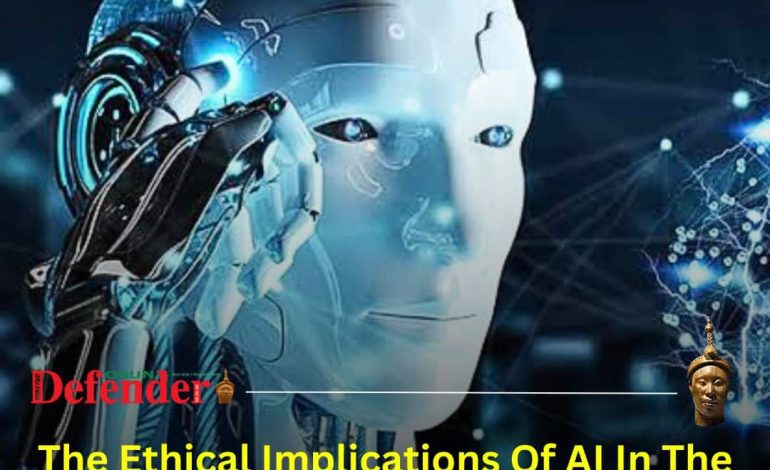Ethical Implications Of AI In The Online World

The proliferation of artificial intelligence (AI) in the online realm has sparked considerable debate surrounding its ethical implications. As AI technologies become increasingly integrated into various aspects of our digital lives, concerns arise regarding issues such as privacy, bias, accountability, and transparency.
In the realm of data privacy, for instance, AI-powered algorithms often collect and analyse vast amounts of personal information, raising questions about consent, data security, and the potential for exploitation.
Moreover, the inherent biases embedded within AI systems pose a significant ethical challenge. These biases can perpetuate existing inequalities and discrimination, particularly in areas such as hiring, lending, and law enforcement. Without careful oversight and mitigation strategies, AI algorithms risk reinforcing societal biases and amplifying systemic injustices.
Another ethical consideration revolves around the accountability and transparency of AI decision-making processes. As AI systems autonomously generate recommendations and make decisions that impact individuals’ lives, the lack of transparency in their decision-making mechanisms raises concerns about accountability and the ability to challenge or contest algorithmic outcomes.
Ensuring transparency and accountability in AI algorithms is crucial for fostering trust and addressing potential harms.
READ: AI And The New World Order: Shaping Tomorrow’s Society
Furthermore, the use of AI in content moderation and online censorship poses complex ethical dilemmas. While AI algorithms can assist in identifying and removing harmful content such as hate speech and misinformation, there is a risk of overreach and censorship, stifling free expression and diversity of viewpoints. Balancing the need to combat harmful content with respect for freedom of speech requires careful consideration of ethical principles and human rights.
In addition, the deployment of AI in surveillance technologies raises significant ethical concerns regarding privacy, civil liberties, and government overreach.
Facial recognition systems, for example, have been criticised for their potential to infringe upon individuals’ privacy rights and facilitate mass surveillance. The ethical implications of AI-powered surveillance extend beyond individual privacy to encompass broader societal implications, including the erosion of trust and the consolidation of power in the hands of authorities.
Overall, navigating the ethical landscape of AI in the online world requires a nuanced understanding of its potential benefits and risks.
While AI technologies hold immense promise for enhancing efficiency, productivity, and innovation, safeguarding against ethical pitfalls is essential to ensuring that AI serves the collective good and upholds fundamental principles of fairness, accountability, and respect for human rights. By fostering interdisciplinary collaboration, promoting transparency, and integrating ethical considerations into AI development and deployment, we can strive to harness the transformative potential of AI while mitigating its negative consequences on society.

Sodiq Lawal is a passionate and dedicated journalist with a knack for uncovering captivating stories in the bustling metropolis of Osun State and Nigeria at large. He has a versatile reporting style, covering a wide range of topics, from politics , campus, and social issues to arts and culture, seeking impact in all facets of the society.









